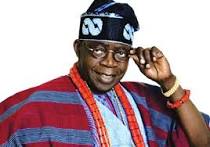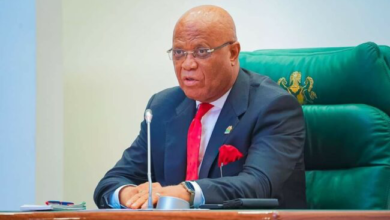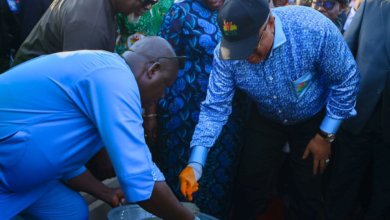Despite Good Ratings, Experts Frown At ‘Bloated’ Ministerial List

President Bola Ahmed Tinubu
As the President Bola Ahmed Tinubu-led government enters the third month, economists and financial experts are worried that the expected economic growth seems to be “few and far between”, despite the administration receiving commendations from rating agencies.
The administration has been receiving commendations from ratings agencies on some of the steps taken so far, but experts are concerned that the gains may likely be eroded by the high cost of governance due to an over-bloated ministerial list, including special advisers and special assistants.
S&P Global Ratings at the weekend revised its outlook on Nigeria to stable from negative, citing the government’s recent reforms which the credit ratings agency believes could benefit the country’s growth and fiscal outcomes if delivered.
President Tinubu has embarked on the country’s boldest reforms in decades, which he hopes will kick-start growth and attract foreign investors into a country that has suffered chronic dollar shortages, making it difficult for companies to thrive.
“Nigeria’s newly elected government has moved quickly to implement a series of fiscal and monetary reforms, which we believe will gradually benefit public finances and the balance of payments,” the rating agency said in a statement on Friday.
S&P’s sovereign analyst, Frank Gill, said last month that the rating agency was closely watching Nigeria ahead of its review on August 4 and added that recent reforms were positive signs.
In February, S&P had maintained Nigeria’s credit rating at “B-/B” but changed its outlook to “negative”. Rival Fitch affirmed the West-African country at ‘B-‘ in May.
It also lowered its long- and short-term Nigeria national scale ratings to ‘ngBBB-/ngA-3’ from ‘ngBBB/ngA-2’.
S&P said its negative outlook rating for the country “reflects increasing risks to Nigeria’s debt servicing capacity over the next one-to-two years due to intensifying fiscal and external pressures.
“The outlook revision reflects our view that Nigeria’s debt servicing capacity has weakened due to high fiscal deficits and increased external pressures. These stresses stem from low (albeit recently rising) oil production volumes, large refined-petroleum subsidy costs, high debt service expenditures, and a relatively large planned fiscal deficit in the 2023 budget,” the agency noted.
In another endorsement, Ajay Banga, World Bank’s President, commended the bold steps taken so far by President Tinubu to solve Nigeria’s problems, saying he is determined to do the right things and take the right steps.
According to Banga, Tinubu is doing everything that Nigeria needs to survive and correct its current situation, adding that without this, Nigeria would constantly be in unsustainable deficits.
He said, “Basically, we had a very constructive discussion, not just with the president, but also a number of his advisers and we talked about what was in his mind as priorities.
“I commended him for a lot of the things he’s doing early in his term, not easy; macro, fiscal reforms and stability are very important. He’s very determined to do the right thing.
“I think you will find the World Bank supporting everything, not just financial aid, but also with knowledge and thinking around how to create the right regulatory policies and fiscal policies. So we had a very good discussion. It ended very well.”
He noted that the difficult part is how to pull through the current process for the next few months, even as he encouraged Nigeria to be nurtured to become the African champion, so the rest of the world will see the country as the rallying point for African relations.
Despite all these ratings and endorsements, economists and financial analysts, who spoke to Daily Independent at the weekend, said all the steps taken in revamping the economy will amount to nothing if the cost of running government is too high.
Stephen Iloba, an economist, believes that the decision to have 48 ministers and with close to 70 other appointees will only demonstrate how insensitive the Tinubu’s administration is.
He said, “How can you explain that a government which has removed petroleum subsidy and liberalised exchange rates can be insensitive to appoint 48 ministers?
“This is showing to the people that government doesn’t care about them. We are all waiting for the Tinubu’s government to reduce the number of ministers and not add to the one we had under Buhari. Buhari had 43 ministers while Tinubu is currently having 48 ministers”.
Cyril Ampka, an Abuja-based economist, said one of the reasons why Nigeria has not recorded the needed growth was the cost of governance.
He said, “Take a look at the history of Nigeria, subsequent governments have spent so much in running government at the detriment of the people.
“A country like Nigeria should not be operating a bicameral legislature. It runs a Senate that consists of 109 members and a 360-member House of Representatives. Imagine if we only have the Senate, the country would have saved billions of naira every year.
“A country under the same circumstance as Nigeria shouldn’t have more than 20 ministers. We should all ask our leaders to atop the wastage”.





